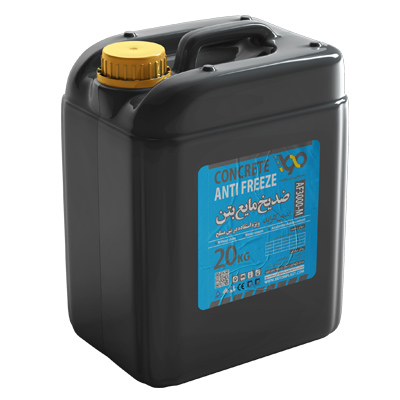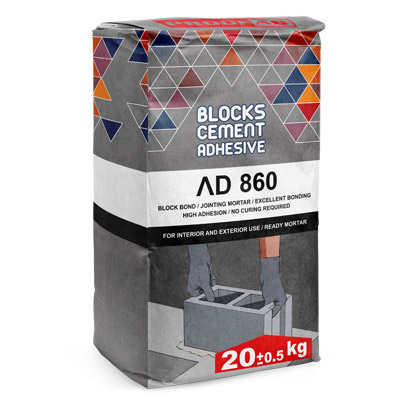liquid concrete anti freeze
Description
Description: liquid concrete anti freeze
Liquid concrete antifreeze is a liquid based on sodium nitrate, calcium and additives that accelerate the hydration reaction, which is formulated and designed for concrete pouring in extreme cold and reduces the concrete retention from 12 hours to 4 to 5 hours.
Features:
- It has the ability to heat the concrete
- Reduces the freezing point of concrete
- Compatible with Portland cement
Applications:
- It is suitable for concreting in cold and freezing areas
- Ability to produce and run concrete in climatic conditions with temperatures of -10 to +5
- Ability to perform restorative work in cold and freezing weather
Technical specification table:
| Appearance | liquid |
| Color | yellow |
| Specific gravity | 2/1 gr/cm3 |
| Standard | ASTM C494 – BS EN 934 |
| PH | 7 |
| Chlorine ion | Doesn’t have |
Package:
20kg gallon
Product Description – Chloride-free liquid concrete antifreeze
Pouring concrete in cold weather conditions is a constant challenge for contractors. Cold weather causes the water in the concrete to freeze, resulting in volumetric expansion of the concrete after hardening, which creates various problems for the concrete. By freezing the water in the mix, the portion of water that should react with the cement in the concrete mix is removed, and essentially no water remains in the mix until the hydration process is complete and the concrete takes the required shape.
As a result, the hydration process is disrupted and the initial setting of the concrete is not achieved. One way to prevent the freezing of the mixed water and achieve faster initial setting is to use liquid concrete antifreeze as an accelerator of the hydration process and an increase in the heat generation of concrete in cold weather conditions. Liquid concrete antifreeze is a liquid based on sodium nitrate, calcium, and additives that accelerate the hydration reaction, which is formulated and designed for concreting in extreme cold and reduces the setting of concrete from 12 hours to 4 to 5 hours.
Chloride-free concrete antifreeze is specifically designed for use in reinforced concrete construction and does not contain any corrosive substances that are harmful to steel. By adding a specific amount of liquid concrete antifreeze to the concrete mix, a faster reaction of water and cement can be observed, and initial setting and compressive strength can be achieved in a shorter time. Standard concrete antifreeze is also compatible with all types of Portland cement and can be used.
Chloride-free liquid concrete antifreeze is a specialized admixture used to enhance the performance of concrete in cold weather conditions. This is a chloride-free liquid concrete antifreeze that is used to produce high-quality concrete and accelerates the setting time of concrete at relatively low temperatures. Chloride-free concrete antifreeze is suitable for reinforced concrete because it does not contain chloride or other ingredients that cause corrosion of steel reinforcement.
Liquid concrete antifreeze packaging
20 liter gallon
220 liter barrel
1000 liter tank
Liquid concrete antifreeze storage
Duration: One year in original packaging.
Conditions: Away from cold and frost, heat and direct and prolonged sunlight.
Best storage temperature: +10 to +30 degrees
Note: The use of liquid concrete antifreeze cannot guarantee that the concrete will not freeze. After the concreting of the sections is completed, it is necessary to cover them with a suitable coating and the requirements for curing and maintaining concrete in cold weather must be implemented in accordance with the regulations.
Consumption rate of liquid concrete antifreeze
The amount of liquid concrete antifreeze used depends on the coldness of the ambient air at the time of concreting and 8 to 12 hours after concreting, as well as the grade of the concrete. Therefore, predicting changes in ambient temperature in order to accurately determine the amount of use should always be considered.
Note: The use of liquid concrete antifreeze cannot prevent the concrete from freezing. After the completion of concreting, the sections must be covered with a suitable coating and the requirements for curing and maintaining concrete in cold weather must be implemented in accordance with the regulations.
Weight percentage of liquid concrete antifreeze consumption based on the weight of cement consumed and ambient temperature in different grades of concrete:
Weight percentage of liquid concrete antifreeze consumption (without chloride):
| Ambient temperature in C | 300 carat | Carat 350 | Carat 400 |
| 0 to 5- | 5/2 | 2 | 5/1 |
| 5- to 10- | 3 | 5/2 | 2 |
| 10- to 15- | 5 | 4 | 3 |
How to use liquid concrete antifreeze
Preparation: In the first step, clean the surface of the molds and reinforcements from water, snow, and ice. If possible, heat them until their temperature reaches more than 5 degrees Celsius. Pay attention so that the temperature of the concrete does not drop below 6 degrees Celsius during concreting. If possible, maintain the temperature of the concrete with appropriate coverage.
Adding the product: The amount of liquid concrete antifreeze calculated according to the grade of concrete is diluted with 2 times the volume of concrete mixing water. The diluted additive is gradually added to the concrete during mixing. This product can be added to the ready-mixed concrete and after complete mixing, concreting is carried out.
Note: It is recommended to mix for at least 1 minute per cubic meter of concrete. Concrete antifreeze can be added to the batching or truck mixer during concrete production.
Note: Note that the amount of concrete antifreeze used should be reduced from the concrete water.
Properties and effects of liquid concrete antifreeze
What are the properties and effects of chloride-free liquid antifreeze in concrete?
- Suitable for all types of Portland cements.
- Reinforcing concrete heat generation
- Achieving initial and final concrete stability in a shorter time
- Preventing concrete from freezing in cold and icy weather conditions
- Speeding up hydration by about 50 percent
- Faster initial setting time
- Preventing steel corrosion due to the absence of chlorine ions in the liquid concrete antifreeze formulation
Applications of liquid concrete antifreeze
- Suitable for preventing freezing of reinforced and unreinforced concrete.
- Suitable for concreting in cold and frosty areas.
- Possibility of producing and applying concrete in weather conditions with temperatures ranging from -10 to +5
- Fast setting concrete for rapid use of concrete structures and forms suitable for concreting in conditions where rapid temperature drops are expected.
- Carrying out repair work in cold and icy weather
- Suitable for making and producing concrete in precast concrete production plants.
Table of physical and chemical properties of liquid concrete antifreeze
What are the physical and chemical characteristics of liquid concrete antifreeze?
| Title | Feature |
| Mode | Liquid |
| Color | Matte white |
| Specific gravity | 2/1gr/cm3 |
| Chlorine ion | No |
| PH | About 8 |
Mechanism of action of liquid concrete antifreeze
For concrete or mortar to set, it is necessary for cement and water to react so that the concrete hardens and reaches the required stability. The hydration stages of cement and water are significantly slowed down at temperatures below 5 degrees Celsius. The chemical additive liquid concrete antifreeze without chloride accelerates the hydration process, which is an exothermic reaction, and if the setting process is controlled and balanced, freezing of concrete can be prevented by adding liquid concrete antifreeze. Concrete antifreeze includes two other products: liquid concrete antifreeze with chloride and powder mortar antifreeze.
Safety of liquid concrete antifreeze
What safety precautions should be observed when using liquid concrete antifreeze?
- This material is not considered toxic, flammable, or environmentally hazardous.
- If your eyes get contaminated, rinse them with cold water.
- In case of contact with skin or eyes, wash with plenty of fresh water.
- If swallowed, seek medical attention immediately.
Concrete liquid antifreeze standard
Which global standard is the liquid concrete antifreeze product produced according to?
ASTM C494 – BS EN 934 st






Reviews
There are no reviews yet.